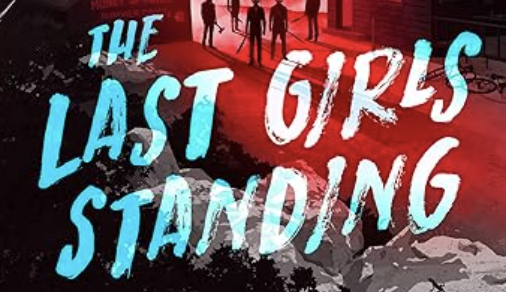True Crime: Exploitative or Educational?
October 20, 2022

Let’s face it: society is fascinated with serial killers. From serial murderers like John Wayne Gacy to Ted Bundy, people are absolutely enamored with the sheer spectacle of the crimes that these killers have committed. As a result of this, there has been a demand for content centered around such criminals and the acts they have committed, and in recent times, this demand has created a sub-genre of documentaries and dramatization films and shows categorized as “True Crime”.
True Crime content is usually one of two things. Either it is a by-the-numbers, no-nonsense, completely factual, and objective analysis of events, or it is what is called a “dramatization”. The latter is when historical events are presented not in documentary form, but in the form of a narrative that is told just like in other drama shows on TV.
For example, Chernobyl, the mini-series on HBO, took the major historical event that was the Chernobyl disaster of 1986 and converted the actual series of events into a narrative developed into a limited series. The events are presented in the drama format, as opposed to a purely objective perspective. This form of storytelling allows for artistic liberties to be taken, so elements of the actual events may be altered for the purpose of creating a more cohesive narrative experience.
There are numerous examples of this in the True Crime genre. One of these is the 2019 film Extremely Wicked, Shockingly Evil, and Vile. This film is an “American biographical crime drama” that tells the story of prolific American serial killer Ted Bundy. The film’s title comes from a quote from Edward Cowart, the judge who presided over Bundy’s trial. Specifically, the quote comes from the same remarks which Cowart made when sentencing Bundy to death. Reviews for this film praised lead actor Zac Efron’s performance as Bundy but criticized the way that the perspective from which the story of the film was told ultimately served to glorify Bundy, intentionally or not. The film also failed to address the impact of his crimes on the families and loved ones of his victims. It was released as a Netflix Original.
More recently, there was another dramatization of a serial killer’s crimes that came in the form of Monster: The Jeffery Dahmer Story, also released as a Netflix Original. This series, which has the distinction of being the “biggest series debut” in Netflix history, chronicles the many crimes of Jeffery Dahmer, another of the most prolific serial killers in American history. Dahmer, a killer from Milwaukee, Wisconsin, preyed on men and boys, and his crimes involved activities such as cannibalism, dismemberment, and even necrophilia. Actor Evan Peters, most commonly known for his role as Quicksilver in the Fox X-Men films, portrays Dahmer in this series.
Each episode tells a story from Dahmer’s time as a killer. Famous events like the murder of a 14-year-old boy, the negligence of a police officer that led to his death, the way that Dahmer was caught, and the first murder that Dahmer ever committed of a hitchhiker en route to meet friends at a concert. Reviews for this series generally show a high amount of praise for Peters’ performance as Dahmer but have also yielded a fair amount of criticism that the show is exploitative and glorifies the actions of the serial killer.
A Twitter user named Eric, cousin of Rita Isbell (sister of Errol Lindsey, one of Dahmer’s victims), took to the platform to give a response to the show, saying, “I’m not telling anyone what to watch; I know true crime media is huge [right now], but if you’re actually curious about the victims, my family (the Isbells) [is] pissed about this show. It’s retraumatizing over and over again, and for what? How many movies/shows/documentaries do we need?”
He also stated, “My cousins wake up every few months at this point with a bunch of calls and messages and they know there’s another Dahmer show. It’s cruel.”
Since the release of the series and this response from the family of one of the victims, there has been a larger amount of attention called to the exploitative nature of this kind of content. But in spite of this development, the show is one of the most popular shows on Netflix right now, with no sign of its popularity waning. And as we know, if people will watch, companies will keep making this content. It seems that the masses just can’t turn away from the sheer spectacle of the crimes that have been committed by people like Jeffery Dahmer.
It should be considered, however, that glorifying the crimes of these killers could be sending the wrong message. If we revere these people by giving them this amount of attention, we create a subspecies of celebrities. As a result, there may be more of them, seeing this kind of attention through copycat crimes.
Though this type of content is undeniably engaging, we should be asking ourselves if it is responsible to platform this kind of content, and/or engage with it.





































